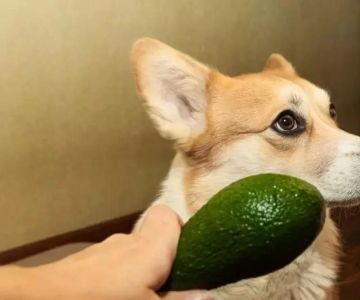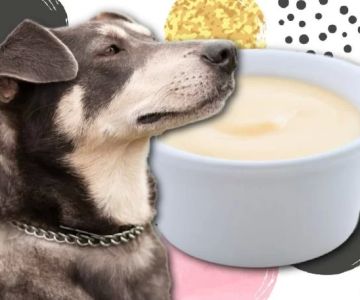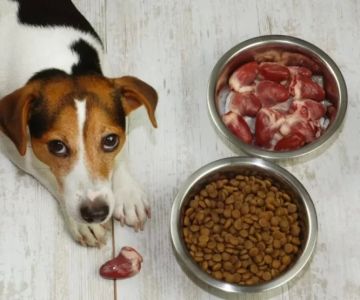- 1- What Is Marshmallow Fluff?
- 2- Can Dogs Eat Marshmallow Fluff?
- 3- Health Risks of Marshmallow Fluff for Dogs
- 4- What to Do If Your Dog Eats Marshmallow Fluff
- 5- Safe Sweet Treats for Dogs
- 6- Consulting Your Veterinarian
1. What Is Marshmallow Fluff?
Marshmallow fluff, often known as marshmallow crème, is a sweet, sticky, and airy substance made primarily from sugar, corn syrup, egg whites, and vanilla flavoring. This spreadable treat is commonly used in sandwiches, desserts, and other recipes, offering a sugary, gooey texture that’s beloved by many. While it’s a popular human snack, it’s important to consider whether it’s safe for pets, particularly dogs, who have different dietary needs.
2. Can Dogs Eat Marshmallow Fluff?
The short answer is no, dogs should not eat marshmallow fluff. While it’s not toxic to dogs in small quantities, marshmallow fluff is high in sugar, corn syrup, and artificial ingredients, which can be harmful to your dog’s health if consumed regularly. Dogs have different digestive systems and nutritional requirements than humans, so foods that are safe for people might not be safe for pets.
Marshmallow fluff doesn’t provide any nutritional benefits for your dog and can lead to several health issues if ingested, especially in large amounts. Even though it’s not likely to cause immediate poisoning, it’s still best to avoid giving your dog any kind of sugary, processed foods like marshmallow fluff.
3. Health Risks of Marshmallow Fluff for Dogs
Feeding your dog marshmallow fluff can present a number of health risks, including:
1. Weight Gain and Obesity: Marshmallow fluff is loaded with sugar and calories, which can contribute to weight gain and obesity in dogs. Obesity is a serious health concern for dogs, leading to conditions such as joint problems, heart disease, and diabetes.
2. Upset Stomach: Dogs have a sensitive digestive system, and consuming sugary or fatty foods like marshmallow fluff can lead to gastrointestinal upset, including vomiting, diarrhea, and discomfort. This is especially true if your dog eats a large amount of marshmallow fluff at once.
3. Dental Problems: The high sugar content in marshmallow fluff can contribute to dental issues in dogs, such as cavities and plaque buildup. Over time, these problems can lead to more serious conditions like gum disease or tooth loss.
4. Potential for Allergies: Marshmallow fluff contains egg whites, which could cause an allergic reaction in some dogs. While egg allergies aren’t common, it’s important to monitor your dog closely if they do ingest marshmallow fluff for any signs of an allergic reaction, such as itching, swelling, or digestive upset.
4. What to Do If Your Dog Eats Marshmallow Fluff
If your dog happens to eat marshmallow fluff, the first step is to stay calm. While a small amount might not cause immediate harm, it’s important to monitor your dog for any signs of distress. Here’s what you should do:
1. Assess the Amount: Consider how much marshmallow fluff your dog consumed. A small lick may not cause any issues, but larger amounts could lead to digestive problems or a sugar rush.
2. Monitor for Symptoms: Keep an eye on your dog for any signs of gastrointestinal distress, such as vomiting, diarrhea, or lethargy. If these symptoms occur, contact your vet immediately.
3. Call Your Veterinarian: If your dog ate a significant amount of marshmallow fluff, it’s a good idea to consult your veterinarian. They can offer advice on how to manage the situation and may recommend bringing your dog in for an evaluation if needed.
5. Safe Sweet Treats for Dogs
While marshmallow fluff is off-limits for dogs, there are plenty of safe and healthy sweet treats that can satisfy your dog’s sweet tooth. Here are some pet-friendly options:
1. Carob: Carob is a dog-safe alternative to chocolate, which can be toxic to dogs. It’s often used in dog treats and can provide a sweet, cocoa-like flavor without any harmful effects.
2. Frozen Fruit: Many dogs enjoy frozen fruits such as blueberries, strawberries, and apple slices. These are low in sugar and rich in vitamins and antioxidants, making them a healthy option for your dog.
3. Sweet Potato Chews: Sweet potatoes are a natural, healthy treat for dogs. You can make sweet potato chews by dehydrating slices of the vegetable, which provides a chewy texture that dogs love without the added sugar.
4. Peanut Butter (in moderation): Dogs often love peanut butter, and it’s a safe treat as long as it’s free from xylitol (a toxic sweetener for dogs). Just be sure to give it in moderation to avoid excessive calories and sugar.
6. Consulting Your Veterinarian
If you have concerns about your dog’s diet or if they accidentally consume something they shouldn’t, it’s always a good idea to consult your veterinarian. They can provide personalized advice based on your dog’s breed, size, and overall health. Additionally, they can help you create a balanced diet plan that includes healthy treats and appropriate food to keep your dog happy and healthy.
At Hidden Brook Veterinary, we offer expert advice on pet care, including safe food recommendations and natural alternatives. Visit us to learn more about how to keep your pet’s diet healthy and safe.












